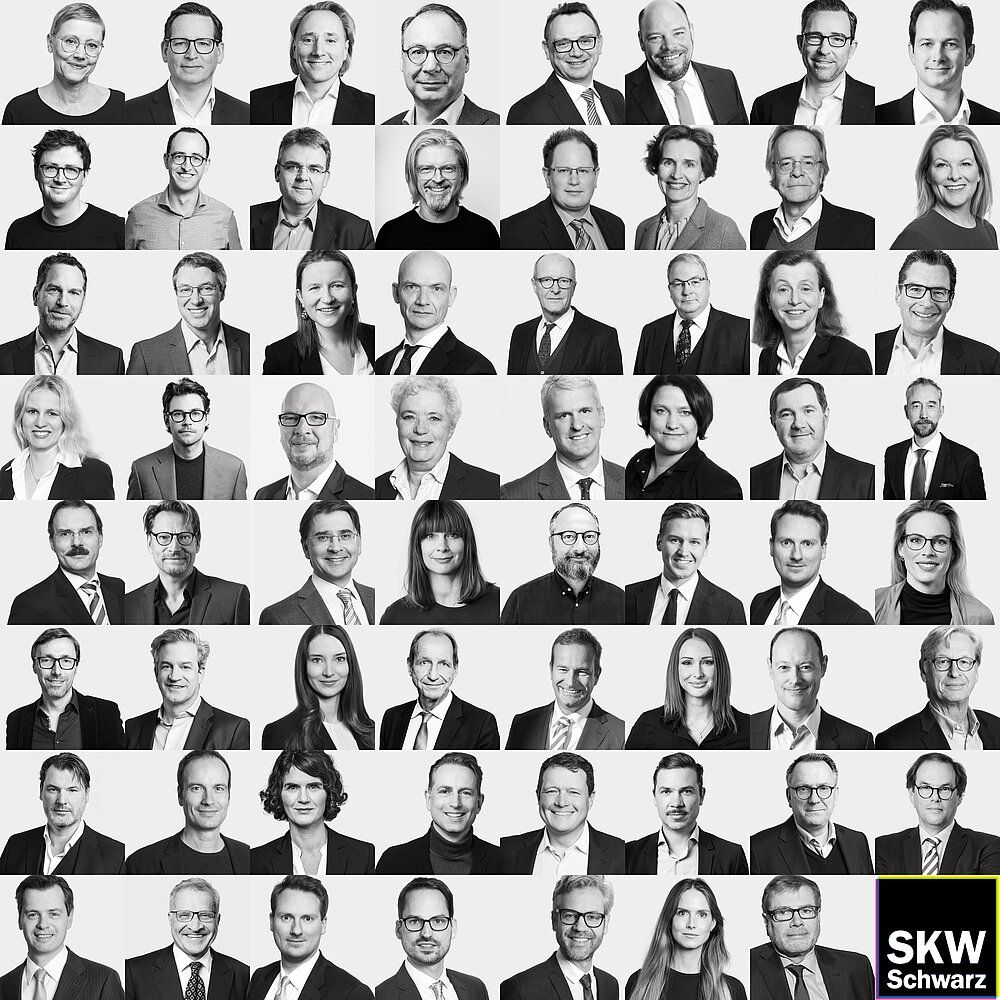With the nationwide introduction of so-called Commercial Courts, Germany aims to meet the long-standing desire of the German judiciary and the German legal profession for a competitive alternative to (international) arbitration. The outstanding success of the Commercial Courts introduced in Stuttgart and Mannheim in 2020 illustrates the need for such a reform. At the Stuttgart Commercial Court Symposium on 8 May 2023, the President of the Higher Regional Court of Stuttgart, Dr. Andreas Singer, drew a thoroughly positive balance after a good two years:
"As the judiciary in Baden-Württemberg, we have understood that major commercial proceedings will only take place in our court if we make an effort to do so. With highly specialized judges and short proceedings times, we are making an attractive offer to the companies and lawyers based here. No one has to go abroad to resolve complex commercial disputes. Everyone can choose the procedure that best suits their needs.
Current situation of German jurisdiction and need for reform to strengthen Germany as a court location in international competition
According to the results of a study commissioned by the Federal Ministry of Justice, the number of proceedings before state courts in Germany has fallen massively over the last 25 years - despite the tens of thousands of "diesel" cases. Particularly with regard to (international) commercial disputes with high amounts in dispute, there has been an extreme shift from state jurisdiction to private arbitration courts in recent years, with the result that there is now hardly any competition with state courts in this area, which has led to a worrying monopoly position for arbitration courts.
The fact that the case numbers of the special chambers at the regional courts, which are generally responsible for these disputes, are so low is due to the various deficits of these special chambers. For example, the judges1 in the special chambers only have a general specialization in commercial law and many proceedings are either not conducted at all or only partially in English. In addition, it is German practice that only transcripts dictated by the presiding judge are prepared of the hearings and witness examinations and not verbatim transcripts, as is common in the Anglo-American world. Furthermore, the appeal process cannot be limited, which leads to an enormous cost burden. Finally, the enforcement of German judgments in countries outside the EU - particularly in the USA, China and Japan - depends on bilateral or multilateral agreements and is therefore often cumbersome or even impossible in practice.
All in all, ordinary jurisdiction in Germany does not currently offer a modern procedural option, particularly for major commercial disputes. Against this background, there is a justified need to strengthen Germany as a location for justice and business by reforming the German justice system. The introduction of so-called commercial courts throughout Germany is a central component of the reform efforts. This is intended to make German courts internationally competitive and prevent a further migration of disputes to (international) arbitration. However, all legislative initiatives to establish such commercial courts have so far failed.
Relevance and success of commercial courts based on the example of Baden-Württemberg
Parallel to the various, so far unsuccessful legislative initiatives of recent years, some federal states have already taken action within the current legal framework. For example, Baden-Württemberg, Berlin, Hamburg, Hesse and North Rhine-Westphalia have set up various special chambers at regional courts and special panels at higher regional courts for international commercial disputes. Baden-Württemberg was the first federal state to introduce its own Commercial Courts at the regional courts in Stuttgart and Mannheim in the fall of 2020 (www.commercial-court.de and www.commercialcourt.de), which were supplemented by special panels at the Higher Regional Courts of Stuttgart and Karlsruhe (so-called Commercial Courts of Appeal).
The Commercial Court in Stuttgart and Mannheim each consists of a commercial civil chamber (with three professional judges) and a chamber for commercial matters (with one professional judge and two specially trained commercial judges). In Stuttgart, the Commercial Court is responsible for cases with an amount in dispute of EUR 1.0 million or more, while in Mannheim it is only responsible for cases with an amount in dispute of EUR 2.0 million or more:
- Disputes in connection with the purchase of companies or company shares,
- disputes arising from mutual commercial transactions,
- disputes under company law and
- disputes arising from banking and financial transactions (only in Mannheim).
Whether a dispute is assigned to the Commercial Court within the Regional Courts of Stuttgart and Mannheim is determined exclusively by the local business distribution plan.
Both Commercial Courts specialize in major commercial and international disputes and are staffed with highly specialized judges. They handle cases quickly and efficiently in a conference room atmosphere using modern communication technology and in close dialog with the parties, as is usually only the case in arbitration proceedings. The offer to prepare a verbatim record of the oral proceedings in addition to the legally prescribed outline record if required - as is customary in arbitration proceedings - addresses a further criticism of state court proceedings.
Since the Stuttgart Commercial Court was established in November 2020, around 600 cases have been filed there, with a combined value in dispute of around half a billion euros. The average duration of proceedings was only around six and a half months (instead of the usual several years) and the appeal rate is very low at less than ten percent.
Current draft bill from the Federal Ministry
After unsuccessful attempts over the last thirteen years and the draft bill of the Federal Council, which was only rejected by the Legal Affairs Committee in April 2023, the Federal Ministry of Justice published a draft bill on April 25, 2023 for an "Act to strengthen Germany as a location for justice by introducing commercial courts and the court language English in civil jurisdiction". Among other things, this provides for the federal states to be able to set up commercial chambers at selected regional courts and commercial courts at their higher regional courts. The Commercial Courts are to be responsible as special panels for large international disputes in commercial matters at first instance from an amount in dispute of EUR 1.0 million. An appeal to the Federal Court of Justice (BGH) should always be permitted against a first instance decision by the Commercial Courts.
The draft bill is justified by the fact that increasing globalization, the growing complexity of legal relationships and the changing expectations of those seeking justice require adjustments to the German Courts Constitution Act and procedural law in order to ensure the high quality and attractiveness of German civil justice in the future.
In order to implement this, the federal government should insert a corresponding state opening clause in the German Courts Constitution Act (GVG) and adapt the Code of Civil Procedure (ZPO) and the law on general terms and conditions (AGB) in the German Civil Code (BGB).
The planned federal law should enable commercial courts to offer (almost) the same services as have long been a matter of course in arbitration:
- Jurisdiction should be determined by express or tacit agreement between the parties.
- The use of video conferencing technology should be increased;
- negotiations may be conducted entirely in English if the parties agree. For this reason, there should be special procedural rules for English-language proceedings in the ZPO;
- the proceedings are to be structured by a so-called case management conference. This is a tried and tested organizational meeting with the parties, familiar from arbitration, in which certain procedural principles are defined in advance and a procedural plan is drawn up;
- It should be possible to hold hearings and take evidence for several days at a time;
- If the parties agree, a verbatim record should be kept; and
- sensitive business secrets should be specially protected not only from the time of the oral hearing, but from the time the claim is filed.
Remaining advantages of arbitration over commercial courts
However, even if the draft bill is passed as law in the near future and the nationwide special panels can be called upon, arbitration will not disappear overnight due to its continuing advantages over the commercial courts. It is also foreseeable that the special panels of the Higher Regional Courts will not be able to keep up with the advantage that is perceived in practice of having a knowledgeable and, above all, freely selectable arbitrator. In addition, the enforceability of German court judgments outside Europe is still associated with considerable difficulties or even impossible. Arbitration awards are governed by the so-called New York Convention of 1958, under which 166 states have so far committed themselves to the mutual enforcement of arbitration awards. However, there is no comparable convention for court judgments from Germany.
Conclusion
The establishment of the Commercial Courts in Baden-Württemberg and the current draft bill are a first step on a long road to the introduction of nationwide Commercial Courts in Germany. In a second step, it remains to be seen what costs will be incurred for the establishment and maintenance of these commercial courts and to what extent the German judiciary will implement the changes.
However, only if politics and the judiciary work together will Germany as a location for justice and business be sustainably strengthened by the uniform nationwide introduction of commercial courts. The long-term goal is for a larger proportion of proceedings with high amounts in dispute to be decided by commercial courts instead of arbitration for cost reasons alone, thus restoring parity between arbitration and the state courts.
The litigation lawyers at SKW Schwarz will be happy to assist you with any questions you may have in connection with the commercial courts.
1 In the following, this term is used uniformly for all judges




